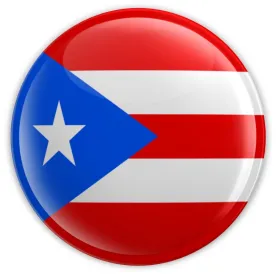All of the recent changes to the required minimum distribution (RMD) rules of Section 401(a)(9) of the U.S. Internal Revenue Code, except for provisions related to the handling of tax-free rollovers, may be applied to Puerto Rico participants in dual-qualified plans (i.e., U.S.-qualified retirement plans that cover both U.S. and Puerto Rico employees) exactly as they are applied to U.S. participants. Puerto Rico participants are, therefore, eligible for the recently extended required beginning date and may waive taking RMDs for 2020.
On the other hand, because Puerto Rico participants are generally subject to the payment of Puerto Rico income tax on the distribution of retirement benefits and RMDs are ineligible for tax-free rollovers under the Puerto Rico Internal Revenue Code (PRIRC), for local tax purposes a purported rollover of RMDs would be a taxable distribution. When implementing the recent Internal Revenue Service (IRS) guidance allowing for rollovers of 2020 RMDs, sponsors and administrators of dual-qualified plans may want to consider informing Puerto Rico participants that in their cases such rollovers may have adverse tax consequences.
Recent RMD Changes
Section 114 of the Setting Every Community Up for Retirement Enhancement (SECURE) Actamended Section 401(a)(9) of the Code to change the required beginning date for RMDs from April 1 of the calendar year following the calendar year in which the individual attains age 70½ to April 1 of the calendar year following the calendar year in which the individual attains age 72. The new required beginning date applies to RMDs “required to be made after December 31, 2019, with respect to individuals who attain age 70½ after that date.”
Also, Section 2203 of the Coronavirus Aid, Relief, and Economic Security (CARES) Act amended Section 401(a)(9) of the Code to allow for “a waiver of RMDs from defined contribution plans … for 2020,” whether they are paid during 2020 or 2021, as well as RMDs for 2019 to be paid during 2020 (together, “2020 RMDs”). Consistent with the legislative intent behind Section 2203 of the CARES Act to permit individuals “to avoid taking RMDs in 2020,” on June 23, 2020, the IRS issued Notice 2020-51, which, among other things, allows individuals to complete tax-free rollovers of their 2020 RMDs to eligible retirement plans. Ordinarily, RMDs are not distributions eligible for such rollovers.
Application to Puerto Rico Participants
Dual-qualified plans are, quite simply, U.S.-qualified plans that also cover eligible Puerto Rico employees. They are subject to the regular U.S. plan-qualification requirements, including the RMD rules of Section 401(a)(9) of the Code. In addition, solely with regard to Puerto Rico participants, dual-qualified plans are subject to the plan qualification requirements of Section 1081.01(a) of the PRIRC.
The PRIRC does not contain an equivalent to Section 401(a)(9) of the Code nor a regulations on the timing for the commencement of retirement plan benefits. Instead, that matter is governed by Section 206(a) of Employee Retirement Income Security Act (ERISA) and, in the case of dual-qualified plans, Section 401(a)(9) of the Code. Accordingly, any changes made to Section 401(a)(9) of the Code, such as the recent RMD changes noted above, apply to all plan participants, including Puerto Rico participants.
The potential problem with rollovers of 2020 RMDs by Puerto Rico participants in dual-qualified plans is that Section 1081.01(b) of the PRIRC allows only for tax-free rollovers of all or portions of lump-sum distributions. A lump-sum distribution is a payment within a single calendar year of a participant’s entire vested account balance or, in the case of a pension plan, vested accrued benefits, following the participant’s separation from service or plan termination.
Since RMDs are not lump-sum distributions, for Puerto Rico income tax purposes, their transfer to an eligible retirement plan is deemed a taxable distribution. By transferring their 2020 RMDs to eligible retirement plans, Puerto Rico participants may defer the payment of U.S. income tax, but not the payment of Puerto Rico tax. Moreover, since for local tax purposes the transfer is a taxable distribution, the trustee or paying agent for the plan would have to withhold Puerto Rico income taxes on the amount transferred and deposit the amount withheld with the Puerto Rico Department of the Treasury.
A Potential Approach
At first glance, the problem with rollovers of 2020 RMDs by Puerto Rico participants would seem to be avoidable by amending a plan to preclude Puerto Rico participants from completing such rollovers. However, absent some sort of administrative approval by the IRS, such an amendment could be a violation of the direct rollover rules of Section 401(a)(31)(A) of the Code, which could jeopardize the United States’ qualification of the plan.
Instead, a relatively easy and inexpensive way to avoid this problem may be to include within the summary plan description, or the summary of material modification directed to Puerto Rico participants, a brief description of the adverse tax consequences that these participants could face if they elected to transfer their 2020 RMDs to an eligible retirement plan.




 />i
/>i

